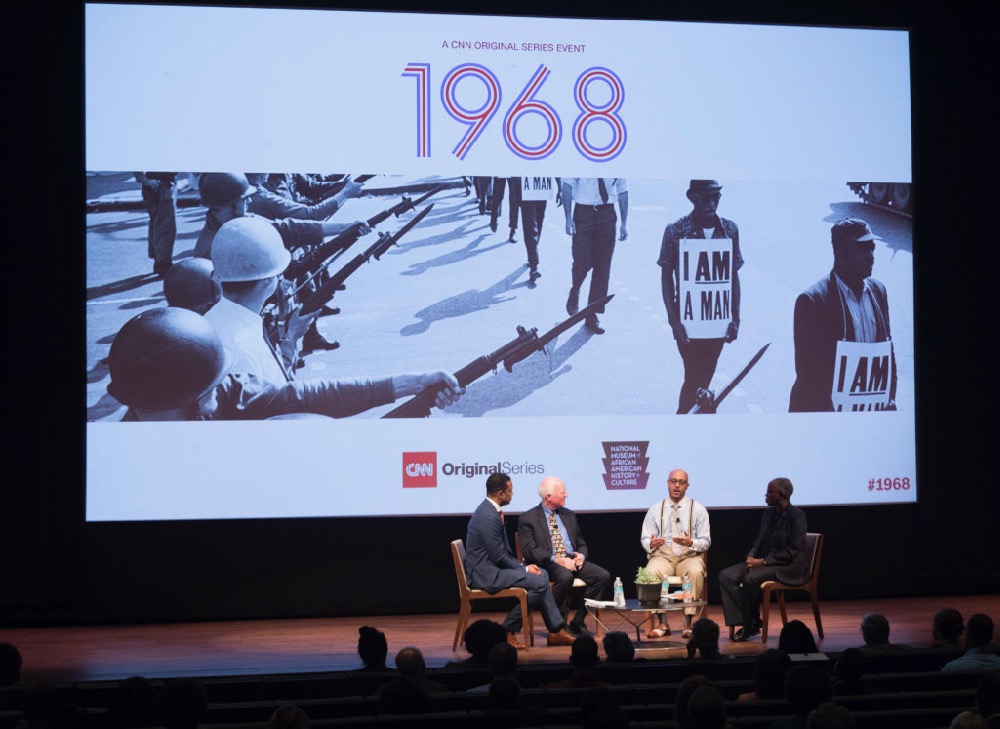1968

Like years before and after 1968, memorable events have shaped history; but 1968 was a pivitol year. It was a year of fierce social and political change with two major factors that shaped the country like none other: The Vietnam War and the Civil Rights Movement. It was the year that Dr. Benjamin Spock was indicted for conspiring to violate the draft law; “Rowan & Martin’s Laugh-In” premiered on NBC; “In the Heat of the Night” stars Rod Steiger & Edith Evans won The Golden Globes; President Lyndon B. Johnson announced that he would not seek re-election; Glen Campbell and Lynn Anderson won the Academy of Country Music Awards; Arthur Ashe became the first African American to win the US singles championship; O.J. Simpson won the Heisman Trophy Award; Republican candidate Richard Nixon was elected President of the United States; and in case anyone cares Evil Knievel (look it up ) failed a jump in Nevada; Frank Sinatra ended the year with My Way; Martin Luther King, Jr. and Robert F. Kennedy were assassinated.
From Emmy Award-winning executive producers Tom Hanks, Gary Goetzman and Mark Herzog comes a CNN Original Series Event, 1968. Using never-before-seen archival footage and contemporary interviews with journalists, historians and notable figures, the series maps the tumultuous events of the entire year, from the assassinations of MLK and RFK to escalating anti-Vietnam War sentiment and civil rights struggles. A post-screening discussion moderated by CNN anchor, Don Lemon included Taylor Branch, Pulitzer Prize-winning author, Hassan Jeffries, Ph.D., professor of history, The Ohio State University, and Renee Graham, Boston Globe took place at the Smithsonian’s African Museum of History and Culture. “1968,” A Four-Part CNN Original Series Event, Debuts Sunday, May 27, at 9 P.M. ET.
“I was a kid, but I grew up with Dr. King. The pictures on the mantel, on the dresser, that would be Dr. King,” Lemon remembered. “There would be John F. Kennedy and Jesus. And those were the three pictures that were on the dresser, so even though I wasn’t actually old enough to remember 1968, my family certainly made sure that they filled me in on it. I didn’t learn as much in high school. I learned more in elementary and junior high school, because I went to a predominantly black school. Then I went to a school that was predominantly white and they just, they didn’t teach it. We did civics, trigonometry, and all that. But we didn’t learn a lot about black history.”
*/





